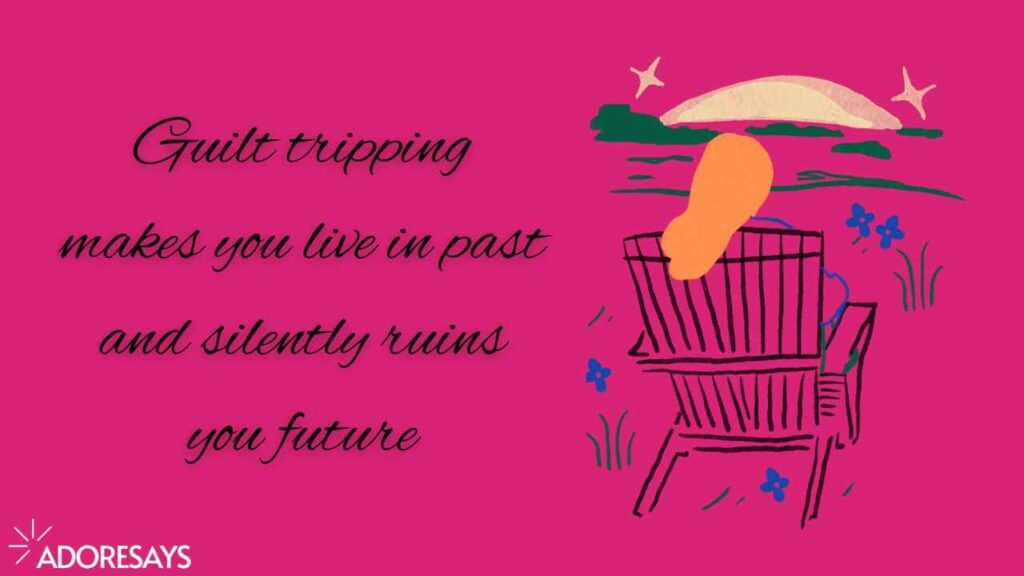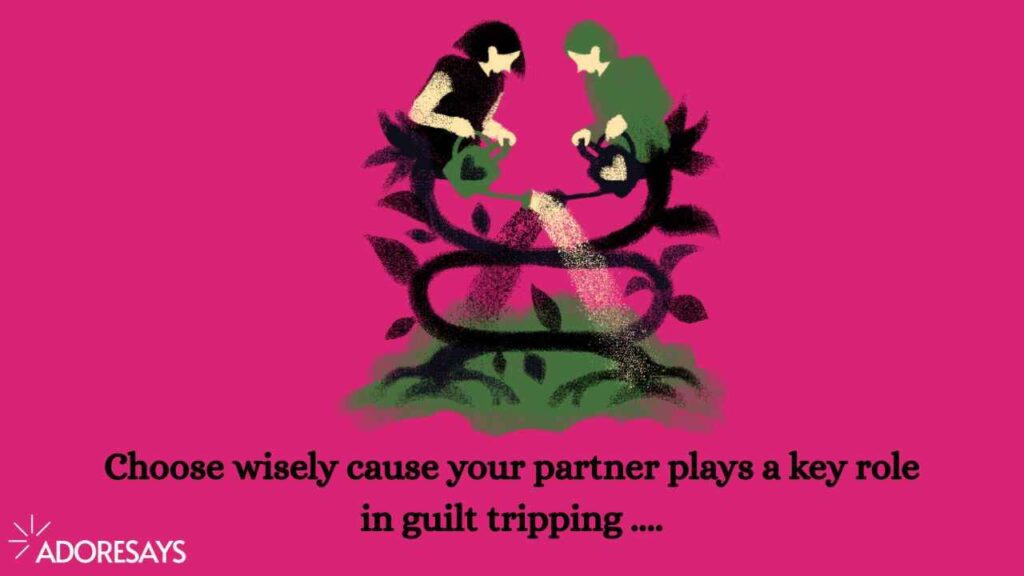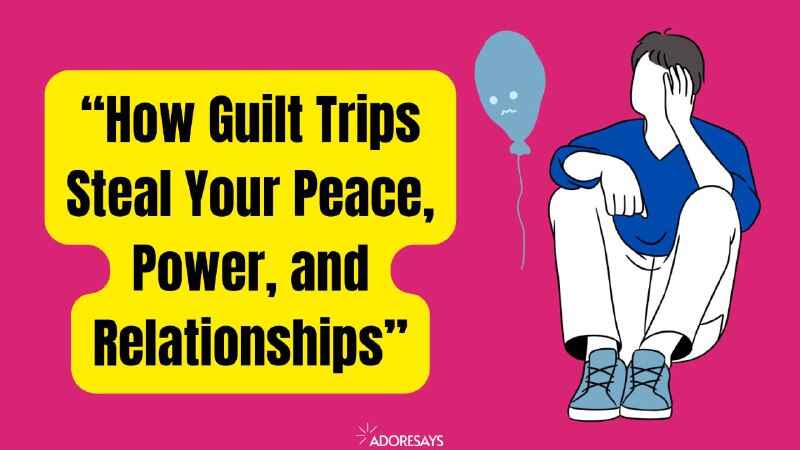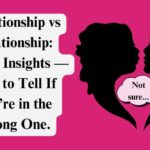We have all been there. That uncomfortable feeling in your chest after you said something you didn’t mean. Or a rerun of a choice you wish you could go back and alter. This feeling has a name, guilt trip. We often feel this way without realizing, we are guilt tripping ourselves for some reason and sometimes without valid reasons.
Sometimes, it comes from within. Other times, someone else puts you on it. If you are regretting your actions but can’t fix the issue, this article will help you understand the guilt trip’s meaning, example and experiences and an excellent approach in phases to get out of it. You will learn how it affects relationships, and what you can do to overcome it.
Guilt trip examples.
You could have heard phrases like this, “I guess I’ll just do it myself, like always”, it’s a passive aggressive way of appealing to the person to do the things through a manipulative language.
They might compare your “X” actions with someone’s Y actions and can make you feel like you are the only one who is not putting efforts and just doing little to balance things in a compensatory way.

Understanding the Guilt Trip.
You feel stuck in your own thoughts. You can’t go back and undo what’s been done. Yet, you also can’t stop replaying it. You can’t shame yourself again and again over a single thing, because as per study “shame thought to be more painful than having guilt”.
So, what is a guilt trip?
● In simple terms, a guilt trip happens when someone makes you feel guilty. It can come from within yourself. Hence, you act a certain way.
● The guilt trip meaning in a relationship is when one partner uses guilt to influence the other’s choices or emotions. It’s not always intentional, but it can be manipulative.
Why do people guilt trip?
As per Psychologist Lindsay-Hartz, argued that guilt experiences are characterized by a violation of the moral order.
● To make someone agree with their point of view.
● To get a favor done without directly asking.
● Sometimes it is to express hurt when they can’t say it openly.
It’s normal to sometimes have a guilt trip. Yet, beware of someone who constantly uses it to control you. That is a red flag.
The Effect of a Guilt Trip on Relationships.
If you leave it unchecked, guilt can damage trust and connection.
As per Baumeister (1994) argues that guilt is especially prevalent in certain types of relationships — “ people appear to feel guilty when they feel hurt, neglect, or disappoint others and when they benefit unfairly vis-a-vis others at other’s expense.
A repeated guilt trip can make your relationships heavy. You start realizing that you should always be cautious. You avoid certain conversations. You even put your own needs on hold.
The guilt trip meaning in a relationship goes beyond just regret. It is about how guilt can be used to shape your behavior. Guilt is part of the healing process. Yet, too much of it while manipulation can be harmful.
What are the signs of guilt tripping?
● They bring up your past mistakes repeatedly.
● They make you feel responsible for their happiness.
● They hint that you are selfish if you don’t do what they want.
● They remark “after all I worked for you…”
If you notice these patterns, it’s worth stepping back. Now ask yourself ‘Is this situation fair?’
When Guilt Becomes a Trap…
Recognize it. Then take action.
Is guilt tripping good?
Sometimes, mild guilt is natural. For example, if you forgot your friend’s birthday, guilt might push you. It will encourage you to apologize and put things right. That is healthy. But when guilt makes you freeze and stop living your life, it is not good for you. Also, if guilt makes you avoid important work, it will ruin your relationships.
The following are the points which show what to do when someone guilt trips you.
● Acknowledge the feeling – Notice if the guilt is coming from their words or your own thoughts.
● Pause before reacting – Don’t rush into decisions just to remove the guilt.
● Communicate clearly – Let them know you understand their feelings, but also share your boundaries.
● Focus on facts – Was it really your responsibility? Or are they shifting blame?
And if the guilt is self-imposed?
As per this study, if guilt is examined in a psychological mindset, “guilt is entirely linked to private self consciousness”
Remind yourself of the following points.
● Everyone makes mistakes.
● Holding back your goals or important work will not fix the past.
● Overcoming guilt takes time. Yet, you will eventually overcome it.

Turning a Guilt Trip into Growth.
A guilt trip can be the start of personal change if you handle it well. Think of guilt as feedback, not a life sentence.
● Apologize where needed.
● Make amends if possible.
● Learn from it so next time, you have no regrets.
Why do people guilt trip? Sometimes, it is because they feel powerless or unheard. If you see this in someone close, talk it out. If it is your own habit, ask yourself ‘Am I trying to control the other person through guilt?’
When you understand the meaning of guilt trip, you can move towards the conclusions. You can decide if the feeling is helping you grow or holding you back.
Moving Forward Without Regrets.
The following are the points which will show you how to break free.
Step 1: Separate Real Responsibility from Manipulation – “Did I really do something wrong, or am I just feeling that way?” is something you should
consider asking yourself.
Step 2: Don’t Hold Your Life Back – Your dreams, work, and well-being matter. Don’t pause your important work just to sit in guilt.
Daniel Nayeri said, “Guilt is a useless feeling. It’s never enough to make you change direction—only enough to make you useless”.
Step 3: Give It Time – Healing is not a fast process. You may still feel bad for a while. Yet, that is part of processing.
Step 4: Promise Yourself Better – Make sure next time, you treat your close ones better. In this way, you can prevent future guilt trips before they happen.
Step 5: Practice Self-Compassion – Engage in conversation with yourself as you would with a close companion. You wouldn’t tell them they are awful for any reason. So don’t say that to yourself.
Final Thoughts:
The guilt trip meaning isn’t about beating yourself up forever. It includes figuring out what’s causing your emotions. Guilt can heal or harm, depending on how you handle it.
Next time ask yourself, “Is guilt tripping good?”. Always remember that it is good only when it pushes you to take responsibility and grow. If it is being used to control you, that is when you need to set boundaries.
So, what are the signs of guilt tripping in your life right now? Identify them. Act on them. Learn from them.
And what to do when someone guilt trips you? The following points will answer you:
● Recognize it.
● Decide if it’s fair.
● Be honest and set boundaries when you respond.
A guilt trip doesn’t have to hold you back indefinitely. Learn and grow from it. Step forward towards light and wise. Be ready to live without regrets.
As per Oscar Wilde, “There is a luxury in self-reproach. When we blame ourselves, we feel that no one else has a right to blame us,”
Tip to Action:
If you have been feeling weighed down by a guilt trip, take a deep breath. Give yourself permission to heal. Talk to someone you trust. Write down your thoughts. Notice when guilt is teaching you something and when it’s just holding you back. We don’t have enough time to live in regret. Start today, and make your next chapter guilt-free. Be kinder to both yourself and others.






Leave a Reply